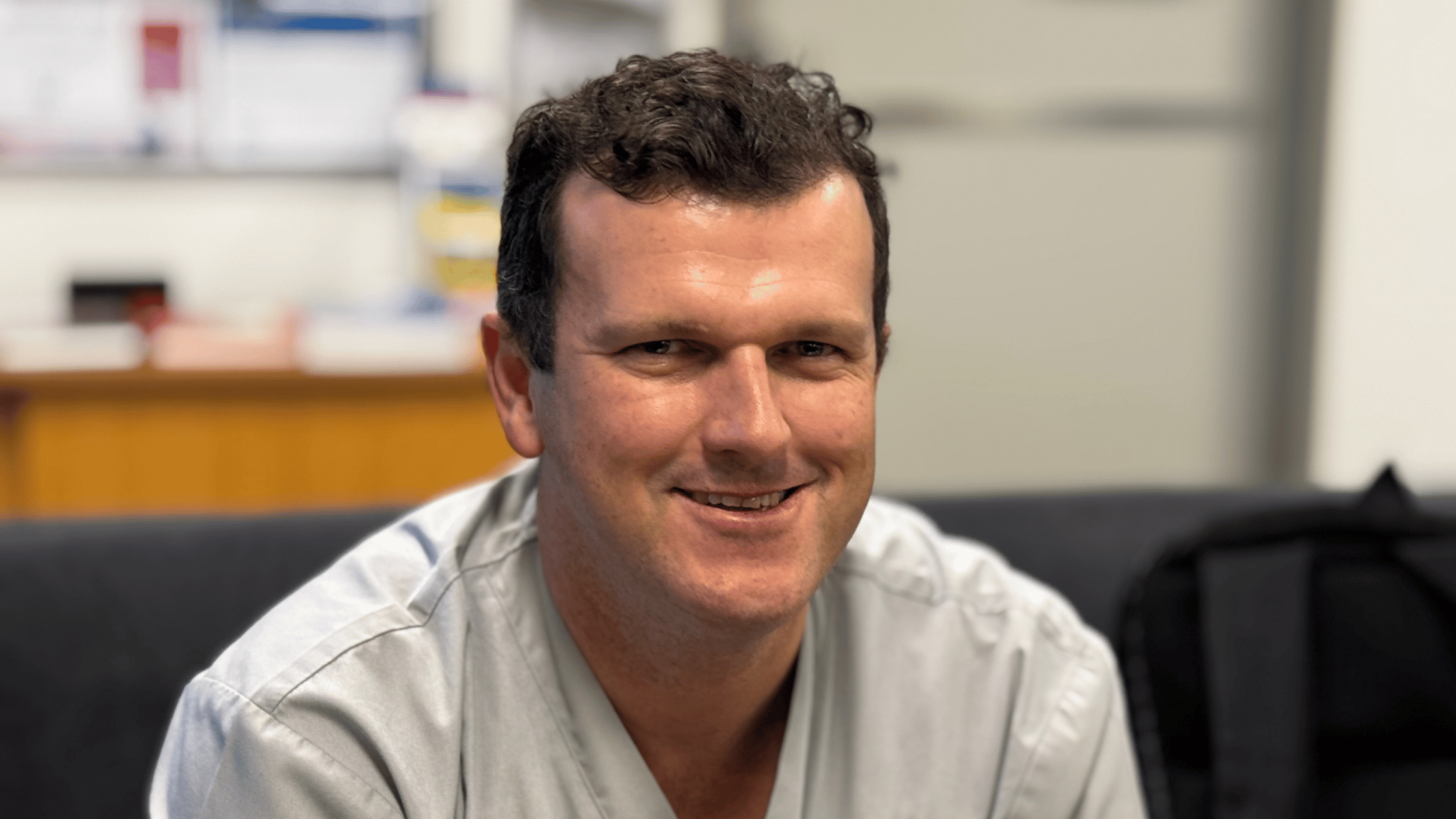When Shaun Buckett walked through the halls of Lismore Base Hospital, he wasn’t just another medical student on placement: he’d come full circle.
Shaun grew up in the Northern Rivers. His dad was from Lismore, his mum from Coraki, and he went to high school in Lismore. After a decade flying Hercules planes in the military, Shaun decided his career needed to take a different direction. He didn’t want a desk job. He’d always liked chemistry, so he started studying pharmacy, and that’s when things really started to click.
“I realised medicine was where I wanted to go,” Shaun says. “But I finished my pharmacy degree first so I could work. It’s all been part of the journey.”
An internship at St Vincent’s Hospital in Lismore connected him with UCRH, and with a research project being led by UCRH’s Frances Barraclough. After connecting with Shaun when he was interning (and was regularly involved in the UCRH student led case discussions), Frances reached out to him to support her work around the training needs of pharmacy students, interns, and pharmacists in rural and regional hospital settings.
Now in his final year of medicine at Griffith University, Shaun returned to his roots – and to his connection at UCRH – for placements in ICU and anaesthetics at Lismore Base Hospital. It’s a move that’s not just about training. It’s about reconnecting with a community that shaped him, and with a healthcare community that has supported and facilitated his new direction.
“I loved my time in the military squadron; there’s a real sense of purpose and teamwork. Medicine has that too. Anaesthetics, especially, brings together everything I’ve done: pharmacy, medicine, aviation. It’s about precision, risk management, and care.”
Shaun’s story is a powerful example of why rural placements matter. They’re not just about filling a gap; they’re about building a future. Across Australia, rural and regional communities face real challenges in attracting and keeping healthcare professionals. In places like Northern NSW, there are often only half as many doctors or allied health professionals per person as in the cities.
But there’s a proven way to change that: give students like Shaun the chance to train in rural settings. When students experience rural healthcare firsthand, when they build relationships, find mentors, and see the impact they can have, they’re far more likely to come back.
Shaun’s first connection with UCRH was a crucial influence on his burgeoning career, and it was a connection that stuck. “Frances was a huge support,” he says. “She helped me stay involved, and that’s part of why I came back.”
Placements like Shaun’s don’t happen in isolation. They rely on strong partnerships between UCRH and our region’s hospitals, health services, community groups, and local mentors. They’re a team effort, and they work.
At UCRH, we believe in the power of rural placements to grow a skilled, passionate, and community-connected health workforce. Shaun’s journey, from flying planes to caring for patients in rural communities, shows just how powerful that connection can be.


